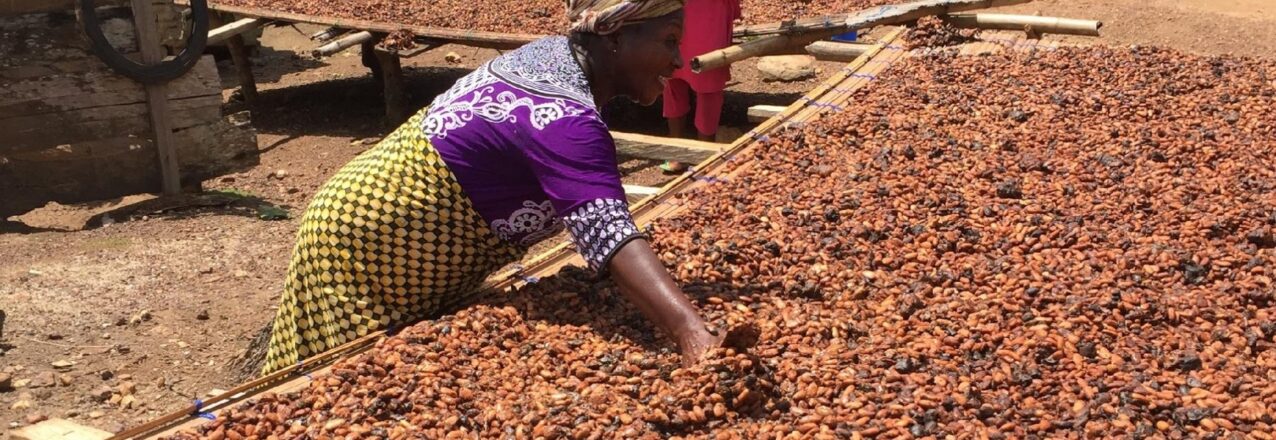Executive Summary
The United States Agency for International Development (USAID) is working with Ecom Agroindustrial Corp. (ECOM), a global commodity trading company, as well as their international brand name partners, including Hersheys, to strengthen women’s land rights and economically empower women in the cocoa value chain in Ghana. An initial gender assessment was carried out by the Integrated Land and Resource Governance (ILRG) program to provide a better understanding of ECOM’s current capacity and the barriers and opportunities for women’s economic empowerment in two target districts, ultimately informing a two-year activity with ECOM and Hershey.
The assessment included a review of existing primary and secondary data, as well as new qualitative data obtained through interviews with ECOM staff and local stakeholders and focus group discussions with women and men farmers. This gender assessment report analyses findings according to five domains: 1) laws, policies, regulations, and institutional practices; 2) social norms and beliefs; 3) gender roles, responsibilities, and time use; 4) access to and control over assets and resources; and 5) patterns of power and decision-making.
Although the legal framework in Ghana provides for equal rights to land ownership and inheritance, in practice women face barriers to owning and making decisions about land. Land ownership determines not only who is considered a cocoa farmer, but also membership in farmers’ groups, and access to resources. As women usually do not own land, they have less access to inputs, training and extension services, technology, and financial services. These constraints negatively affect the quantity and quality of cocoa they can produce, and their income. The dynamics between indigene land owners and immigrant family tenants, and women’s roles in each, further influences if and how women access and control cocoa fields.
Social norms and related beliefs, attitudes, and behaviors limit women’s participation and benefit-sharing in the cocoa value chain in Ghana. Cocoa is considered a man’s crop, with men typically considered to be farmers and women to have a supportive role, even though they actively perform several tasks in cocoa production. The assessment found that women who head households on their own face additional barriers to participation in the cocoa sector and that gender-based violence is socially accepted and prevalent in the target communities. Because men are socially accepted as heads of households and considered more knowledgeable about cocoa, they have greater decision-making power. Men have the discretion to make decisions about cocoa production, resources, and income without consulting women, but the reverse does not apply.
Roles in cocoa farming are highly gendered: tasks considered to require physical strength, high level skills, and key decision-making power are reserved for men. These include land clearing, pruning, spraying, harvesting, fermentation, bagging, and the sale of cocoa. Women carry a disproportionate burden of unpaid household labor, so they have less time to work in cocoa farming, participate in training, and engage in income diversification activities.
ECOM has promoted gender equality within the company and in how it engages with cocoa farmers in Ghana, although clear policies, strategies, and expertise to guide such efforts remain a critical gap. Based on these findings, the assessment includes recommendations to strengthen ECOM’s gender capacity and ways in which to integrate gender equality and women’s empowerment into ECOM’s core business.


